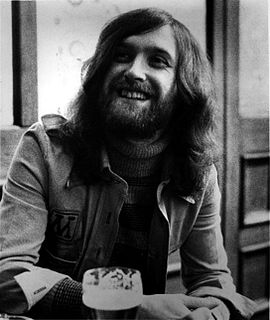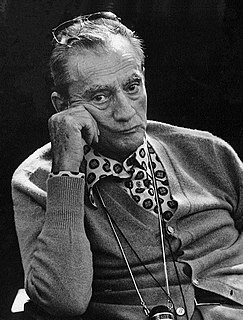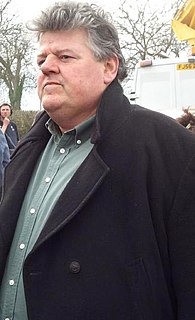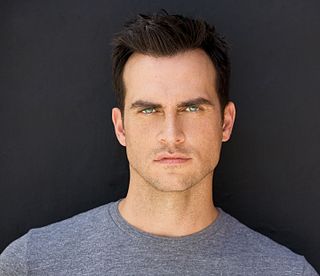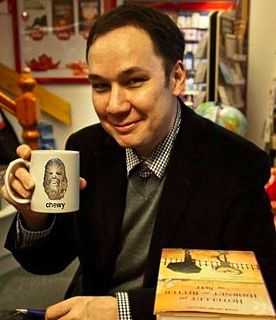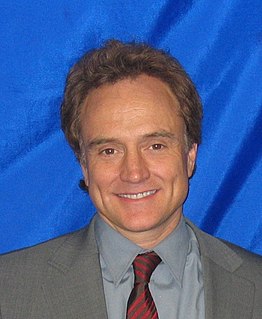A Quote by Patrick Stewart
Roddenberry had created quite a complex and at times mysterious character. Guarded, cautious, careful in showing his feelings in expressing his ideas about many things - I found that very interesting.
Related Quotes
There were times when it appeared to Dorian Gray that the whole of history was merely the record of his own life, not as he had lived it in act and circumstand, but as his imagination had created it for him, as it had been in his brain and in his passions. He felt that he had known them all, those strange terrible figures that had passed across the stage of the world and made sin so marvellous, and evil so full of subtlety. It seemed to him that in some mysterious way their lives had been his own.
The interesting thing about Hain is that he's not a very interesting character. He's not fabulously clever. He's not a great policeman. He's not hugely charismatic. I'd describe him as a kind-of Chekhovian character. He's an ordinary bloke, to whom extraordinary things have happened. Which is quite hard to play, I have to say.
With Aquaman I worked with such talented guys, Ivan Reis and Joe Prado. And he's a great character. I mean, Aquaman's a great character, he just hasn't been positioned in a role of importance in a long, long time. We tried to do that in this series; give him this platform because he deserves it, and give a very different perception of Aquaman while at the same time staying true to who the character is. Showing his power level, his fortitude, his sense of honor and commitment and responsibility, and hopefully showing everything that makes a hero a hero.
Hitchcock's got a very interesting voice; it's a very controlled, measured rhythm that's quite slow and, in that sense, also felt quite controlling in its pace. He retained something from his childhood, that London sound, as well as adopting some of the L.A. sounds... All of this helps you create the character.
The moral absolutes rest upon God's character. The moral commands He has given to men are an expression of His character. Men as created in His image are to live by choice on the basis of what God is. The standards of morality are determined by what conforms to His character, while those things which do not conform are immoral.
Unlike many spiritual leaders, Dalai Lama is never been in a position to just sit on a mountain top handing out wisdom. He's had to live out his principles in the middle of this very complex situation, every day for sixty years or more. I think it's something that moves many people about his example.
Many of the finest and most interesting emotions perish forever, because too complex and fugitive for expression. Of all things relating to man, his feelings are perhaps the most evanescent, the greater part dying in the moment of their birth. But while emotions perish, thought blended in diction is immortal.
Emile Saint-Blague had been a lively, versatile painter in his youth, but he had abused his energy by painting too many pictures; so that in what might have been the ripe period of his art he had nothing left but ideas. A man who has nothing left but ideas may be of great service to his friends, but he is of no use at all to himself. Emile was certainly an inspiration to his friends.
Michael, from 'Six Dance Lessons...' He was somebody who had a lot of self-loathing; being a gay man who lost his family and felt ostracized. It was an interesting character to play. He was so bitter and jaded about life. Even though I'm not like that personally, everybody has a side of themselves that tends to look at the negative side of things. He was an interesting character to play.
The gentleman has nine cares. In seeing he is careful to see clearly; in hearing he is careful to hear distinctly; in his looks he is careful to be kind, in his manner to be respectful, in his words to be sincere, in his work to be diligent. When in doubt he is careful to ask for information; when angry he has a care for the consequences; and when he sees a chance for gain, he thinks carefully whether the pursuits of it would be right.
I did not always agree, personally, on the positions that Bartlet, character from the West Wing, took and I argued against them on many occasions. But Aaron Sorkin said, "Martin, that's you, that's not Barlet. It's a very political decision he has to make." I found from the very beginning that when I infused my own personal feelings about an issue it went against the grain of the character.


